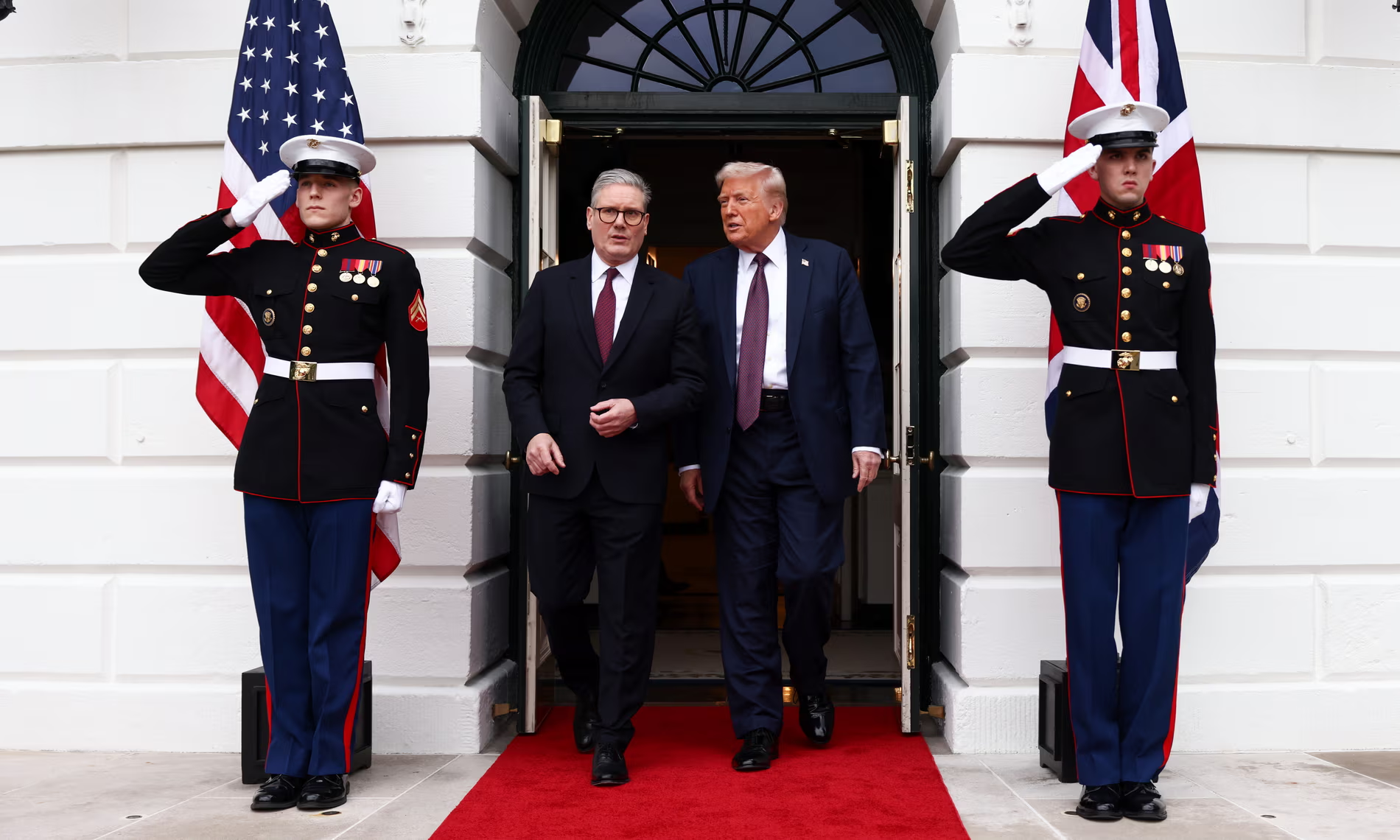UK Declares Trade Documents ‘Secret’ to Avoid US Scrutiny Amid ‘America First’ Policy: Defensive Diplomacy Against Trump’s Tariff War
According to a report by The Guardian, in response to President Donald Trump’s tariff war, UK officials are tightening the security of sensitive trade documents to shield them from US surveillance
UK Declares Trade Documents ‘Secret’ to Avoid US Scrutiny Amid ‘America First’ Policy: Defensive Diplomacy Against Trump’s Tariff War
UK Declares Trade Documents ‘Secret’ to Avoid US Scrutiny Amid ‘America First’ Policy: Defensive Diplomacy Against Trump’s Tariff War
British officials enhance security around sensitive trade negotiation documents
According to a report by The Guardian, in response to President Donald Trump’s tariff war, UK officials are tightening the security of sensitive trade documents to shield them from US surveillance.
Signaling strain in the “special relationship,” British sources told The Guardian that civil servants have introduced new directives, reclassifying certain trade negotiation documents as “Secret” or “Top Secret” to prevent them from being accessed by the US.
The unpredictable and rapidly shifting tariff policies from the White House have destabilized global financial markets and damaged key trade relationships with China, the EU, and the UK.
Sources say the enhanced security measures were directly linked to growing tensions in trade and foreign policy between London and Washington.
Keir Starmer’s Trade Strategy and Relations with the US
Prime Minister Keir Starmer has prioritized a trade deal with the United States. In response to Trump’s imposition of a 10% tariff on UK exports to the US and a 25% tariff on cars and steel, Starmer has chosen not to retaliate. Instead, his government has offered concessions in areas such as digital taxes and agriculture.
US Vice President JD Vance stated on Tuesday that a mutually beneficial US-UK trade deal is “within reach.” He emphasized that “this relationship is extremely important” and that the US is “working very hard with Keir Starmer’s government” to finalize the agreement.
“There is a strong cultural affinity between America and the UK. America is fundamentally an Anglo country. I believe there’s a good chance we’ll reach a great deal that benefits both nations,” Vance added.
British Concerns over Trump’s ‘America First’ Agenda
Behind the scenes, however, many British industries and companies are expressing deep concern about Trump’s “America First” agenda.
Before Trump took office, trade-related documents involving the US were typically marked “Official – sensitive (UK eyes only)” and could be circulated internally via email. This classification remained in place even during negotiations with the Biden administration, despite the absence of a full-fledged trade deal.
Now, a significantly larger share of documents and communications—particularly those involving Number 10, the Foreign Office, and the Department for Business and Trade—come with heightened classifications like “Secret” and “Top Secret.” These classifications include strict guidelines on how such information can be digitally shared to prevent interception.
Corporate Caution and Europe’s Response
Large companies operating in the UK, especially pharmaceutical firms, have also been advised to exercise greater caution when sharing information with the UK Trade Department and Downing Street.
A spokesperson from the Department for Business and Trade stated, “The US is an indispensable ally, and discussions toward an economic prosperity deal that strengthens our existing trading relationship are ongoing.”
The Future of the Special Relationship and National Security Questions
These developments raise broader questions about the future of the so-called “special relationship” between the US and UK—particularly as diverging views on Russia, NATO, and defense cooperation deepen. Trade tensions are also escalating in sectors such as automotive and pharmaceuticals.
Meanwhile, the European Commission has also adjusted its stance on the risk of US interception of sensitive data. According to The Financial Times, EU officials visiting the US are now being issued burner phones as a precaution.
In recent years, defense and intelligence cooperation between the US and UK has been so close that some government documents have been marked “UK/US only” or “Five Eyes”—the intelligence-sharing alliance between the US, UK, Australia, New Zealand, and Canada. So far, however, The Guardian has only identified changes in document handling specifically related to trade.










